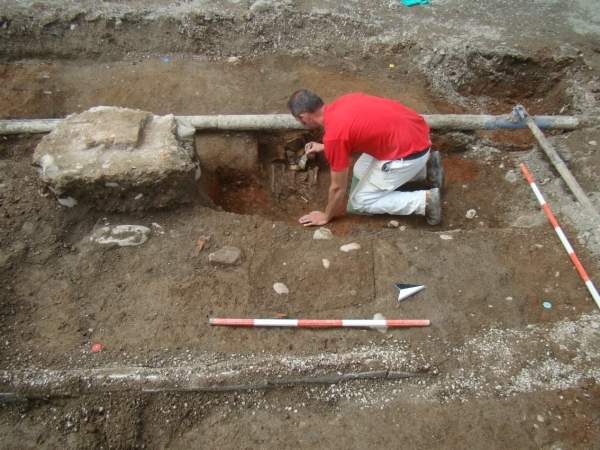A draft bill submitted by the Ministry of Ecological Transition could devastate the protection of cultural heritage: that’s what the Coordination Table of Archaeology Sector Representations and University Councils, composed of ANA National Association of Archaeologists, API Archaeologists Public Employment MiBACT, ARCHEOIMPRESE Association of Archaeological Enterprises, ASSOTECNICI National Association of Cultural Heritage Technicians, CIA Italian Confederation of Archaeologists, Council of Ancient Topography, FAP Federation of Professional Archaeologists, Federation of University Archaeology Councils, LEGACOOP Production & Services and Do you Recognize Me? I am a Cultural Heritage professional.
The rationale of the draft of the bill is to speed up and increase the implementation of works related to the so-called
But what is the point around which it is being discussed? It is an article that would change the permitting processes for facilities located in areas of cultural or scenic interest. Specifically, it introduces the use of silent consent (thirty days after a request for authorization for a project, if no response is received the Environmental Impact Assessment will be considered adopted); again, the Ministry of Culture and the Superintendence Offices participate in the single procedure only “in relation to projects involving plants powered by renewable sources located in areas subject to protection” under the Cultural Heritage Code, and in cases where, “following the application for authorization , the Superintendence verifies that the plant falls in areas affected by protection proceedings or procedures to ascertain the existence of archaeological assets in progress at the date of submission of the single permit application” (translated, it means that the opinion of the Superintendence will be requested only in areas already subject to constraints); finally, the draft reads, “participation is excluded, in particular, for authorization procedures for plants powered by renewable sources to be built in areas conterminous to those subject to protection” under the Cultural Heritage Code. This passage, explained Giuliano Volpe, president emeritus of the Superior Council for Cultural and Landscape Heritage of the Ministry of Cultural Heritage, means “that only what is already known thanks to investigations already carried out in the past can be protected, so much so that protection procedures are underway, in addition, of course, to sites that are already constrained.”
In short, a real threat to protection: in fact,preventive archaeology, i.e., that which deals with doing research to find out whether archaeological emergencies insist on the land that will be the subject of construction, is being hindered, if not completely prevented, and this is both to avoid the blocking of work if discoveries are made (so in fact preventive archaeology speeds up construction sites) and to avoid damage to heritage. And the suspension of preservation activities that is envisioned with such a draft would relate not only to the construction activities of the facilities, but to the works in their entirety, including the construction of connections to national power grids, connecting roads for access to the construction sites, and ancillary works for the preparation of base camps. This suspension, moreover, would not be of any benefit to large system-wide works, which it is claimed will already be able to rely “on ad hoc authorization regulations, while it would affect locally based micro-interventions, which are very difficult to control and verify, leading to substantial and widespread damage to heritage,” the coordination table explains. Moreover, this is not a new situation: back in February, an amendment to the Milleproroghe decree attempted the blocking of preventive archaeology, and even then the table was raised.
“The professional associations and university councils that work in the field of archaeology,” the coordinating table points out, “are taking different actions to oppose these regulations that would suspend landscape and heritage protection. While we are working with Deputies and Senators to explain to them what very serious risks our country would run if these regulations are approved, we have written two letters, one to the President of the Republic, Sergio Mattarella, and another to the ministers of Culture, Dario Franceschini, Ecological Transition, Roberto Cingolani, and Infrastructure, Enrico Giovannini, to point out the criticalities in the formulation of these new regulations and ask for their revocation. Simplifying and speeding up procedures is a fully achievable goal without passing over our heritage and without damaging the landscape. We hope that the government will understand how the protection of our heritage, archaeological and landscape is not an obstacle to the country’s development but the real resource for a future that truly focuses on ecological and cultural sustainability of economic development.”
Pictured: archaeologist performs archaeological essay in Spilamberto di Modena (2015)
 |
| Does the Ministry of Ecological Transition want to devastate archaeology? Concerns |
Warning: the translation into English of the original Italian article was created using automatic tools. We undertake to review all articles, but we do not guarantee the total absence of inaccuracies in the translation due to the program. You can find the original by clicking on the ITA button. If you find any mistake,please contact us.